12 Vacation Tips For Families With Kids On The Autism Spectrum
Traveling is a sure way to gain a new perspective on life. Through the exploration of new places and different cultures, travelers can create vacation memories they can look back on with fondness for years to come.
Family travel is in a different realm from solo or group travel – just as traveling with kids with special needs is in a league of its own.
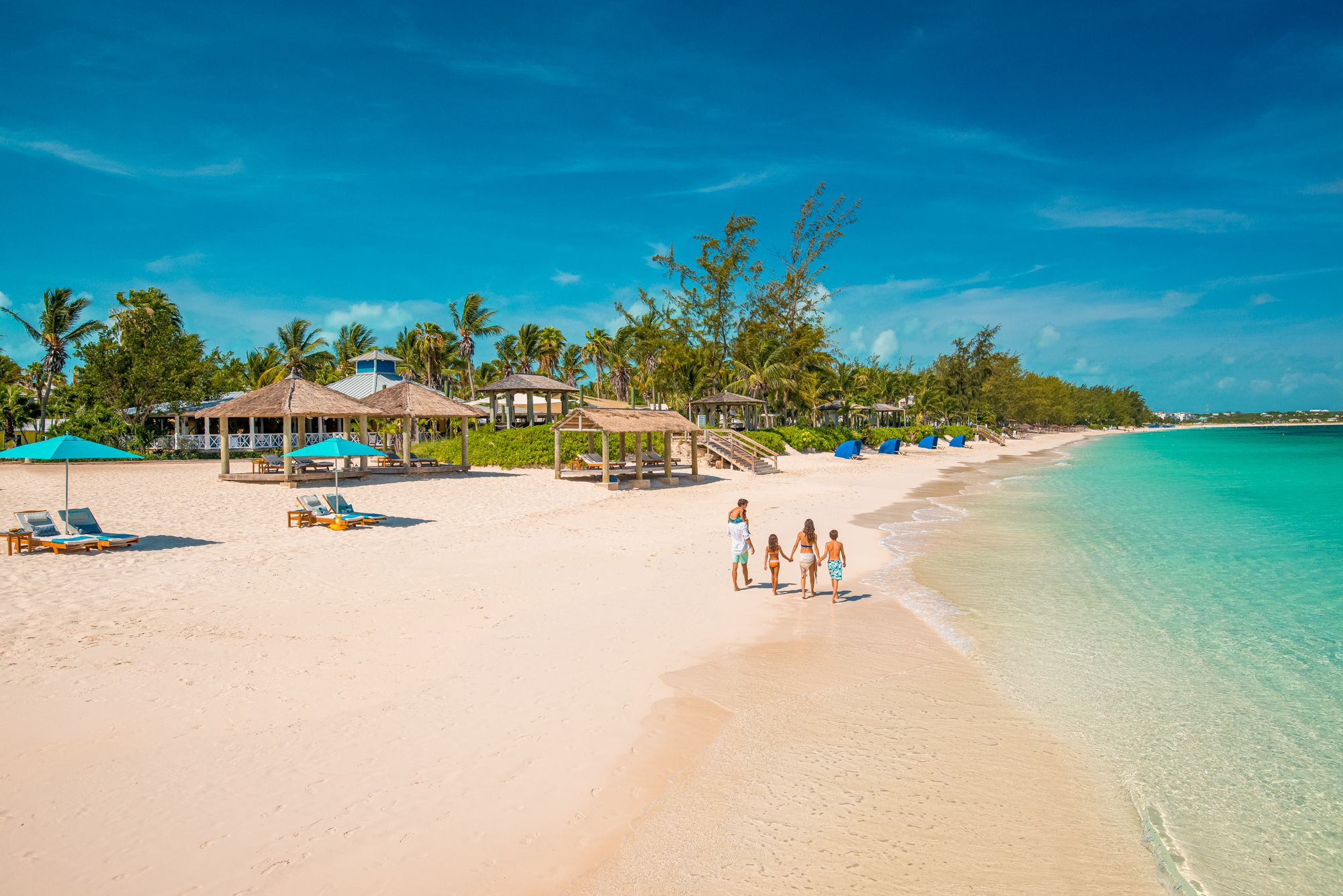
Picture: Dive into a one-of-a-kind, unbelievably exciting Beaches all-inclusive Turks & Caicos vacation for the whole family.
Parents of kids with special needs know this best, and the potential challenges of traveling comfortably with their children keeps some from daring to hope for a vacation at all. Parents of children on the autism spectrum tend to be most aware of the patience required for travel, as kids with autism often have bad reactions to sudden change, or unfamiliar environments.
The good news for parents of kids with autism is that when it comes to travel, challenging doesn’t have to mean impossible. There are many parents who have managed to navigate this space with patience, preparation, and practice. Before throwing in the towel and giving up hopes of traveling as a family, remember that a well-planned trip can be a rewarding experience for all.
What is autism?
An autism spectrum disorder is characterized by certain criteria – typically this ranges from very severe, to very mild. It is a neurological disorder which is typically detected by age 3, and often presents with extensive impairment in development, including in areas of social interaction and communication.

About 1 in 88 children is affected by autism, and studies have shown that boys are most affected, though it is not clear why this is so. Common behaviors include difficulties in reading social cues, difficulty making eye contact, and difficulty with understanding the perspective of other people.
Often kids with autism may demonstrate intense interest in one area and repetitive behavior. Routines also tend to be very important to them. Children with autism may be susceptible to sensory overload, which can sometimes result in aggressive actions. This is why many parents of children with autism shy away from activities like traveling, which can be over-stimulating for a child with autism. Fortunately, there are vacation tips for kids with autism that parents can learn to master, which means family travel is very possible.
Check out Episode 23 of the Sandals PalmCast to hear more about programs for kids with autism at Beaches Resorts!
The mental game you CAN overcome
Families with a child or children with autism understand the importance of sticking to a routine, which is why many are hesitant about traveling far distances. The idea of a family vacation with a child with autism could seem far-fetched, but it is reassuring to know that many parents of children with special needs have managed to travel successfully, leading to enriching experiences for all.
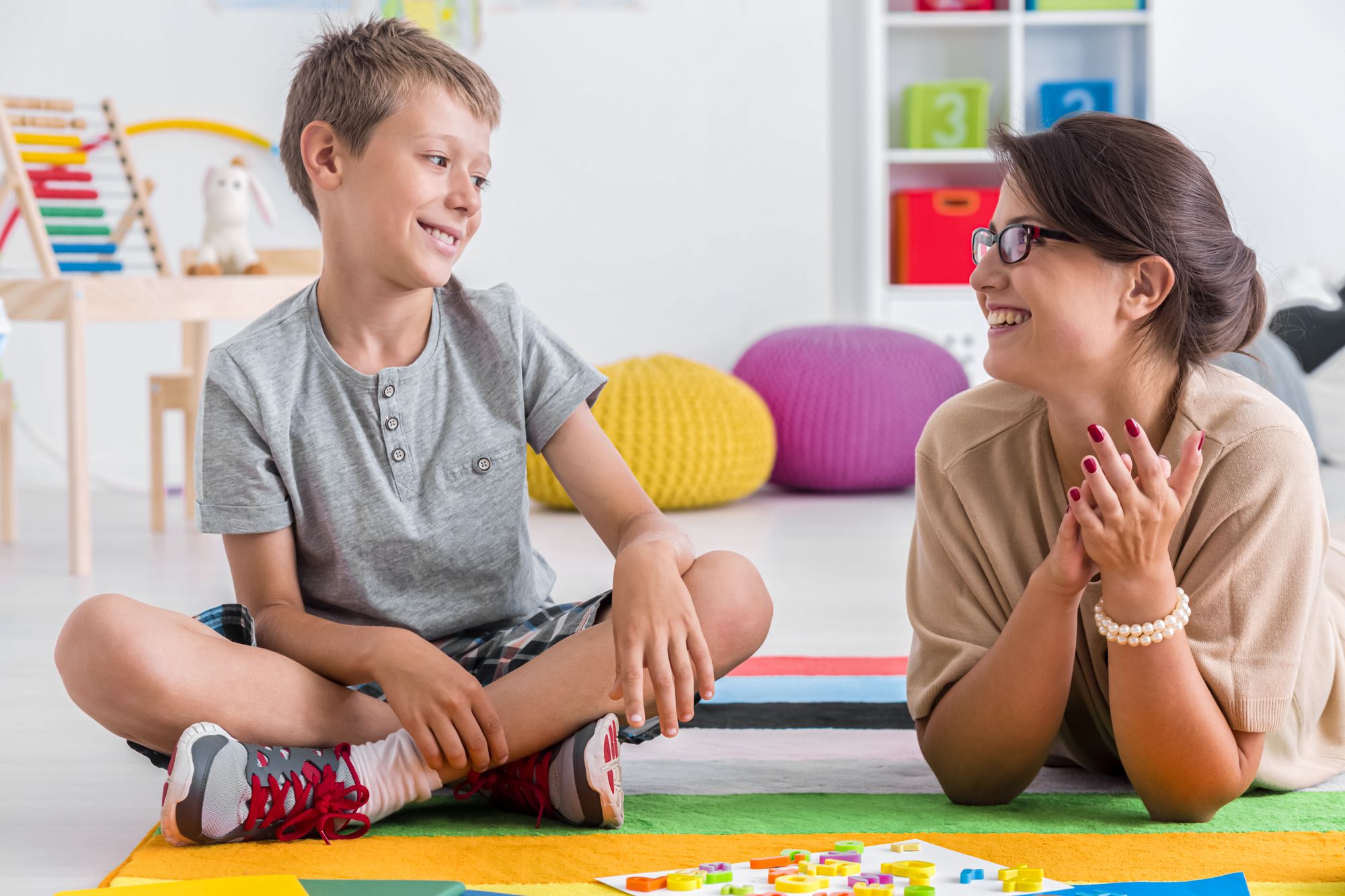
As parents navigate this territory, it is important to remember that understanding is the first step to a successful vacation. Once you’re in tune with the needs of your child, you can then plan your trip taking into consideration all the things that might come up, and how to overcome them.
Parents and caregivers especially should note, that even though their fears of things like rude comments and stares if their kid has a meltdown are valid, it is not the most important thing. The important thing is trying—and working with your child so they’re able to navigate new things that could potentially be scary to them and helping them to realize that these scary things are just part of another routine.
Worry not about judgement; instead, focus on navigating a carefully thought out and amazing new experience with your family.
Vacation tips for families with kids on the autism spectrum
1. Manage your family’s routines ahead of time
Predictability is important in the life of a child with autism, and for this reason, one of the first things parents need to determine before traveling is which routines can go with them overseas. This might be non-negotiable breakfast items, a toy they hold dear, or a nighttime routine. Perhaps there are daily activities you can bring along with you, whatever your mode of travel.
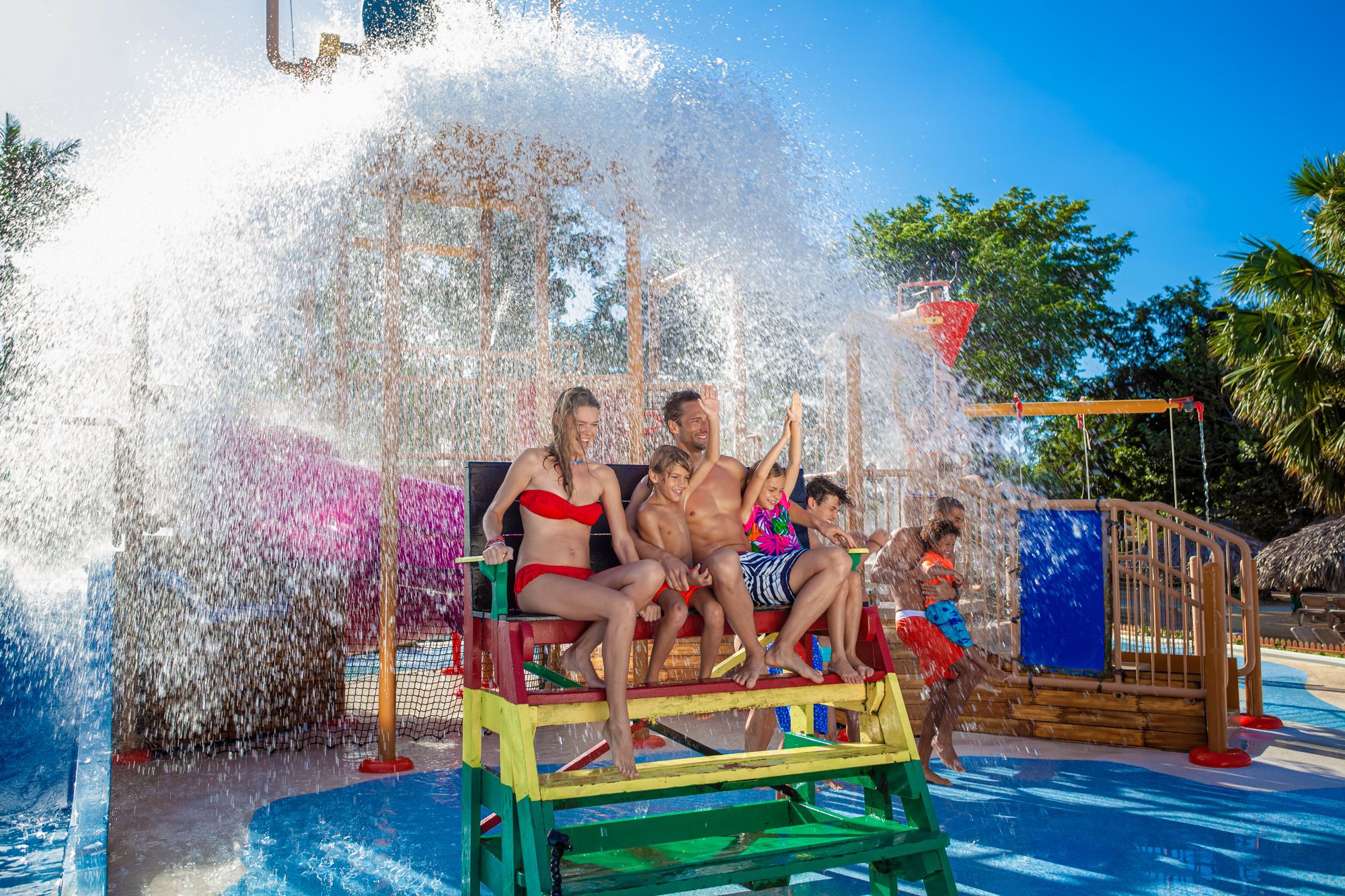
Picture: Beaches Negril’s Pirate Island Waterpark in the Caribbean boasts some of the most fun waterpark experiences in the Caribbean.
Call the resort (if you’re staying at one) before you arrive to make special requests, and take some time to contact airlines, restaurants, and other places you plan on visiting. The more information you have the better – this can help you get your child mentally prepared for the experience. Even further, you may be surprised at some of the offerings of these places in helping to make your travel experience a stress free and rewarding one.
For the first time, it helps if both parents are traveling. If not, another friend or family member can come along to assist with things like informing the airline about your child’s special needs before boarding and for extra assistance if required.
Aside from resorts, there are several airlines, theme parks and restaurants that make provision for children with autism.
2. Ensure your kids can be identified in case they get lost
It can be hard for even a parent with one child to keep them reined in while traveling. The newness of the experience, and all the colors and things to see, touch and explore beckons even the most well-behaved child. Families with multiple kids or those with children with special needs find this even more difficult.

The worst-case scenario, and something from every parent’s worst nightmare, is to have children wander off amid an already hectic travel schedule. This can be more challenging (and not to mention dangerous) for parents of kids with autism who are more at risk when wandering off. It is an even scarier thought for parents of kids who are non-verbal.
To get safely from ‘Point A’ to ‘Point B’, experts recommend ensuring that all your children are identifiable by others, just in case they wander off. Options include having them wear a medical bracelet or necklace which includes contact information throughout the duration of your trip. For children with sensory issues that do not allow them to wear jewelry comfortably, try getting ID tags that can be fastened to shoelaces, or even zippers – you can get these online.
You can also give them ID cards that they can carry around in their pockets and bags – ensure that the information is current with a photo, contact details, and allergy information. If your child is non-verbal, include this information on their ID. Finally, some parents use autism symbol ribbons, or autism awareness clothing so that the people their child encounters are aware.
3. Use social stories, role-playing and media to illustrate difficulties
The key to successful travel with autistic children is preparation. In whatever way you can, ensure they know what to expect. Some great ways of doing this is by creating illustrations, watching videos, or even role-playing.

You can create your own travel itinerary to start with – this can help kids get familiar with what travel entails. This process enables them to be able to visualize and ask questions. Some parents find it useful to watch videos of planes taking off and the security checking process long before their child gets to the airport. Showing them photos of the destination, and even of the resort you will all be staying can also help. As questions come up, you will know what else your child is going to need to get through this new experience with ease.
Role playing
People of all ages can benefit from role-play which can help take the anxiety of new situations down a few notches. Children with autism benefit from role-play, because it can help them get familiar with new situations like travel. Role-play can help with learning to manage frustration, anger, and even expectations. You can even work role-play into discussions on what to do if they get lost, and other explanations of emergency procedures.
Keep in mind that what you’re trying to demonstrate to your child by means of role-play is what a family vacation entails, including the things you will see and do. Get the family involved in various role-playing scenarios which can include learning to pack, with discussions on what you’re bringing along and why. You decide if this works for your child and your family dynamic – not every method works for every child. Overall, the goal is to get your child familiar with the motions involved with traveling so when the time comes, there’s less stress or fear.
Remember to take things step by step. Doing things in a sequence can help your child to visualize and prepare for the new experience. Don’t expect them to get used to things right away – plan to do this for a few weeks before your travel date.
Tip: As traveling requires encountering many new and unfamiliar people, many parents recommend using Language Builder Emotions Cards which can help children identify and discuss feelings and emotions. This helps during travels so your children are aware of the people around them and various moods and emotions. Mirror boards are also useful and can help your child get better acquainted with their own emotions.
4. Set aside time for breaks
Rest is important for any vacationer, and even more so for children with autism. Use their regular schedule to determine which times would be best to stay in and take it easy while on vacation. Take breaks between the different things that you do, especially if your child tends to spiral into anxiety with too much stimulation.

Picture: Beaches Ocho Rios has something for everyone in the family.
It helps if your resort is close enough to the things you want to do so you can return in between if you need to. If not, as you go along exploring various places seek out quiet spots to help your child decompress. Don’t overschedule and try not to keep your child out longer than you would at home. Anticipate trigger points and work around them to avoid breakdowns.
For better moods, stick to their regular bedtimes; this is important to help manage their behavior. Overall, help your child to feel grounded even if they’re away from home. This can help lessen outbursts.
5. Research airport, resorts and other points of interest
Knowing what to expect during travel is important for both parents, and children with autism. For parents, this is a necessity to be able to plan a trip that will be accommodating for their child, from the airport experience, all the way to the resort and back home.

Picture: Beaches Negril captures the essence of a laid-back paradise along with the elegance of a luxury resort.
There are some airports that offer trial boarding for children with autism and special needs. Other airports cater to people with special needs with priority boarding. Beaches Resorts is one of the all-inclusive autism friendly resorts for families where the needs of your child come first, even down to special dietary needs of children with autism. Even still, some parents find it worthwhile to pack some must-have food items to take with them to avoid meltdowns. Calling ahead to restaurants you plan on visiting is also worthwhile.
Using visualization
To ease your child into vacation mode, consider getting pictures of the places you will go and arranging them together according to which you will visit first. Before you leave home, talk about the trip daily as you explore these places through the pictures – you can even arrange the photos into a collage with captions you can read together. Make sure this is in line with their age, understanding, and developmental level. Once you get to your destination, stick to this order of events as much as possible as it will then be familiar to your child.
6. Go the all-inclusive way for kids with autism for more assistance
As much as it may seem like a dream, there are resorts which cater to children with autism and other special needs. This means that you can enjoy a family vacation with your children where everyone’s needs will be met.
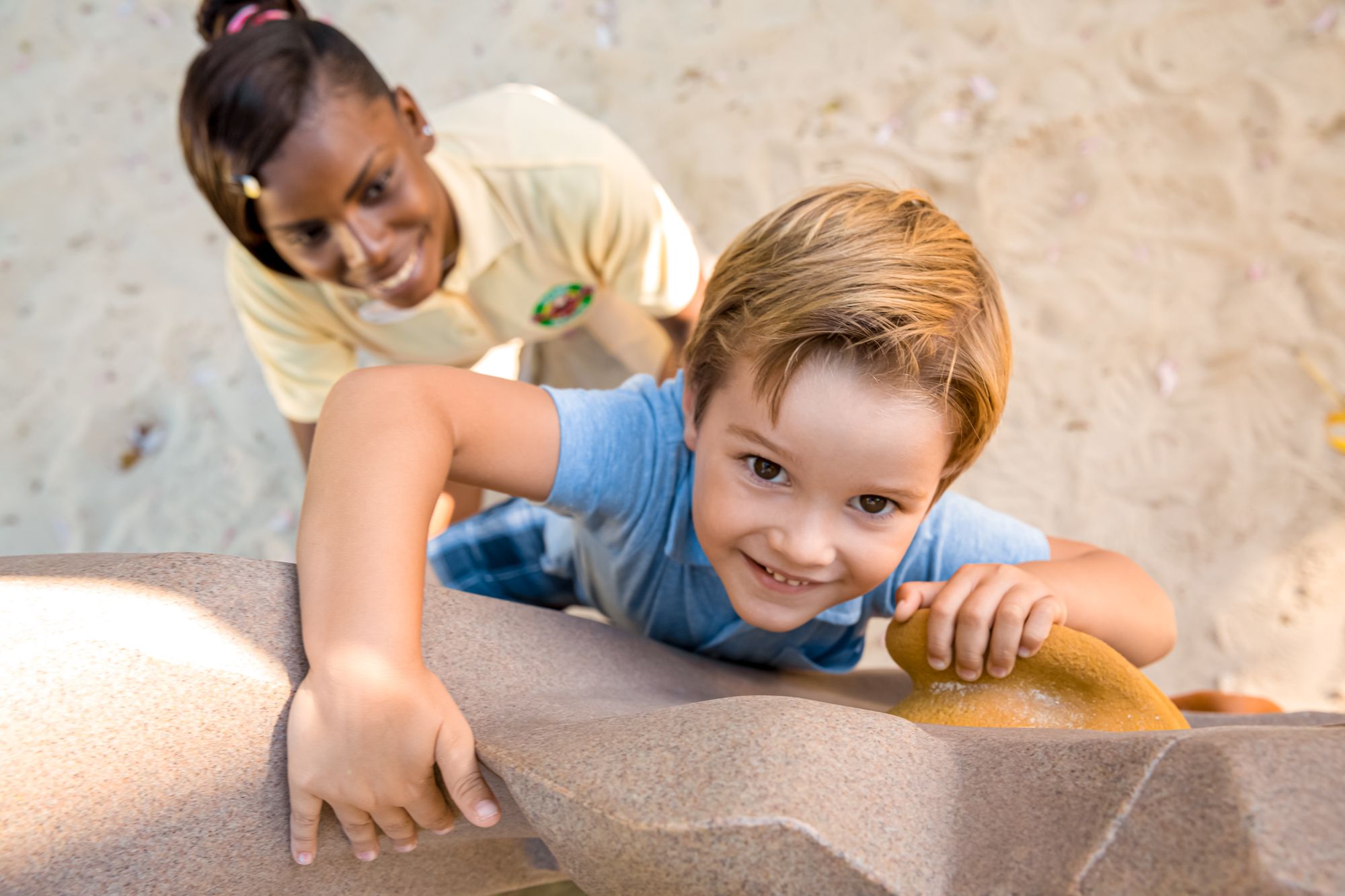
Picture: Our Kids Camps ensure team members have the requisite knowledge, skills, temperament, and expertise to cater to all children, including those with autism and other special needs, and offer age‐specific programs for infants, toddlers, pre‐teens and teens.
Beaches Resorts is one of the only family-oriented resorts in the Caribbean which are classified as internationally recognized Certified Autism Centers (CAC), a designation made by the International Board of Credentialing and Continuing Education Standards (IBCCES). Notably, Beaches Resorts was the first hospitality company in the world to earn this certification, which came about after rigorous training at all its resorts. This recognition means that the staff are trained in the areas of skills, temperament, sensitivity, awareness and other facets of working with children with autism.
The great thing about all-inclusive vacations like these is that parents get a break too. You won’t have to worry about whether your child is in good hands as the child care team is trained in areas including sensory awareness, motor skills, autism overview, program development, social skills, communication, environment, emotional awareness and bullying.
Learn how Beaches Resorts in Jamaica and Turks & Caicos make sure children on the autism spectrum feel right at home. Both dream destinations are located on less than a 2-hour flight from U.S. shores.
7. Talk to your child about the trip home
Just as you carefully planned and gave your child a head’s up that you’d be going somewhere new, use the same strategy ahead of the trip back home. You may have already brought up the idea of going home once your vacation wraps up, but this may not have registered completely given the hugeness of the whole experience.

Picture: The sandy pathways of Barefoot By The Sea add to the ambiance of this charming restaurant.
You can mention it again towards the end of your vacation if you think your child will demand to go back home prematurely once you bring it up. Overall, it’s important for your child to know that you all will in fact be returning home. This helps if they are homesick, or to give them a heads up if they’ve finally settled into their new temporary space. Be patient and use some of the same strategies that you did to prep them for travel. Taking the time to explain this can help quell fears of constant change.
8. Pack a bag with activity and emergency items
Activity items
It is useful for parents of kids of all ages to bring along things that will keep their kids occupied when traveling. This includes things like headphones (including noise cancellation headphones), tablets (fully charged) with chargers, activity workbooks, music, and other things your kids like. This can set the tone for a fun time away from home.
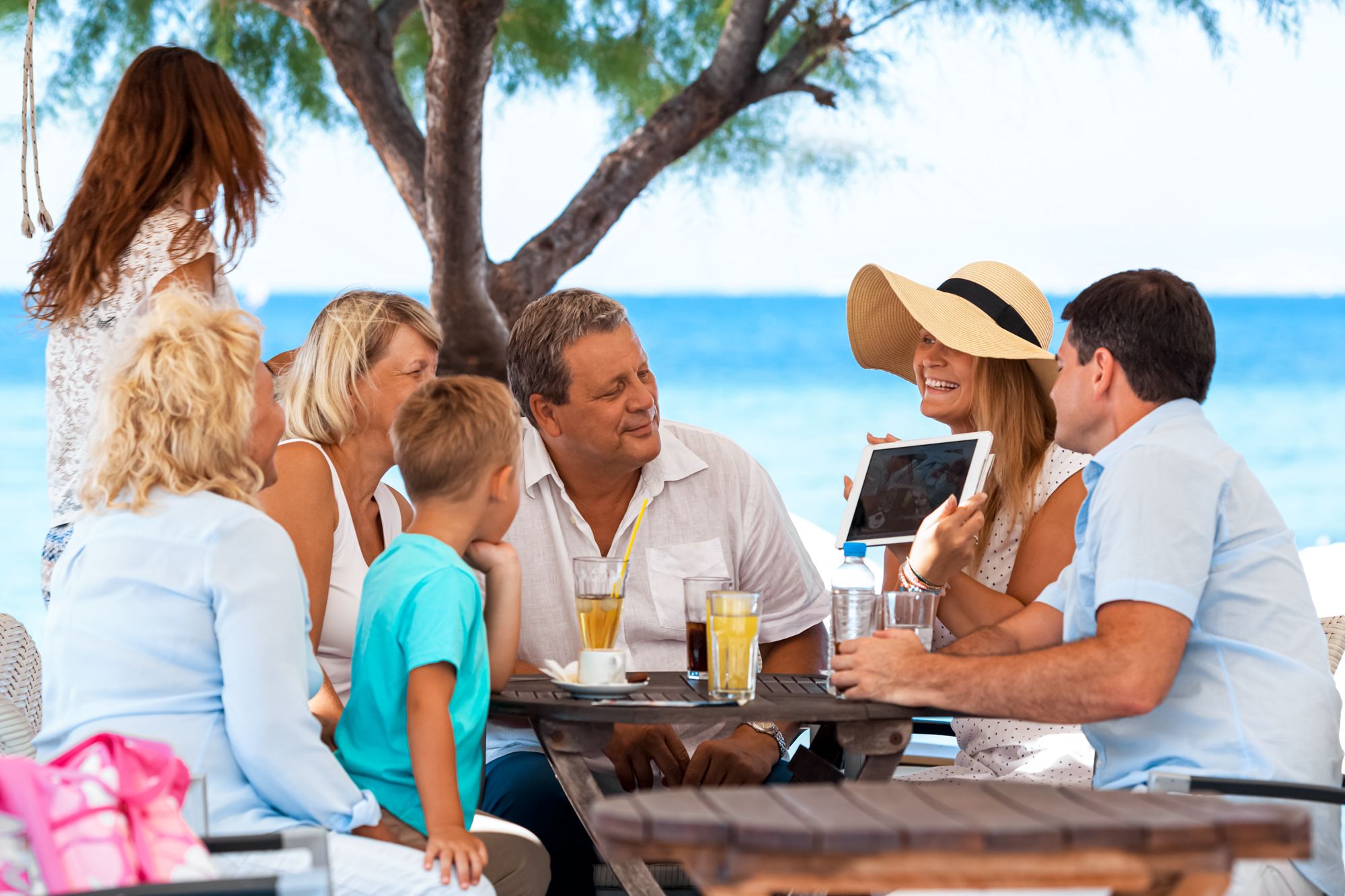
For kids with autism, you can also pack an activity kit filled with some of their favorite items, like sensory toys, games, light-weight books, CDs, and other comfort items. This comes in handy during wait times, whether at the airport, on the road or at the resort check-in. You may even want to consider getting a few new toys to give to your child when they’re most in need of a distraction. Some parents find that simple items, like a piece of string or an eraser can keep their children calm and occupied.
If your child needs assistive communication tools, bring these along as well – whatever will make them comfortable and ensure your trip is as peaceful as possible. If it’s an option, get your child involved in the packing process so you can show them you’re not leaving any of their beloved items behind. If you still feel like you’re forgetting something, pay attention to your child’s daily routine ahead of traveling – this can help you spot little things they gravitate to that can help keep them comfortable in the unfamiliar territory of travel.
Emergency items
There are some important items you’ll need to bring along when traveling with a child with special needs, including identification cards that can provide details like your child’s name, photo, diagnosis, and your contact information. Some parents choose to bring along information cards to hand out to people they interact with who are not familiar with autism. Other things that may be useful to bring along include a letter from your child’s physician just in case medical services need to be sought. This also comes in handy if airlines need further documentation.

ID bracelets, necklaces or tags also come in handy as mentioned earlier, particularly if your child is non-verbal. Snacks, toys, medicines and other items your child can’t live without can all be packed as well – keep the ones you need close at hand in your hand luggage for air travel. Overall, bring along things you know will help if your child has a hard time settling.
Tip: Put together a checklist to ensure that you leave nothing behind that your child will require. Create a checklist to ensure you don’t leave any of your child’s essentials behind. This is crucial to avoid meltdowns and cannot be emphasized enough. Favorite toys or comforting blankets are a must, as many children with autism see these items as part of themselves. Forgetting to pack any of these important items will halt any hopes of vacation enjoyment, quick.
9. Use what you know about your child’s needs, likes and dislikes
You know your child best, and this is something to keep in mind when vacation planning. Especially when traveling with children with special needs, many people will offer vacation tips for children with autism. Measure whatever advice you get paired up with your child’s quirks and personality. Don’t force your child into experiences that may be overwhelming and try as much as possible to stick to the activities you prepped for before venturing out into the world.

Picture: Whether you dine as a family or just the two of you, there is something for every taste at Beaches Turks & Caicos.
While planning a vacation for the entire family, keep everyone's needs in mind so everyone gets to do things they enjoy, while giving due consideration to your child’s special needs. While it may be impossible to isolate your child from all stressors, there are ways to reduce the impact so you can all make the most of your vacation.
10. Plan for the unexpected
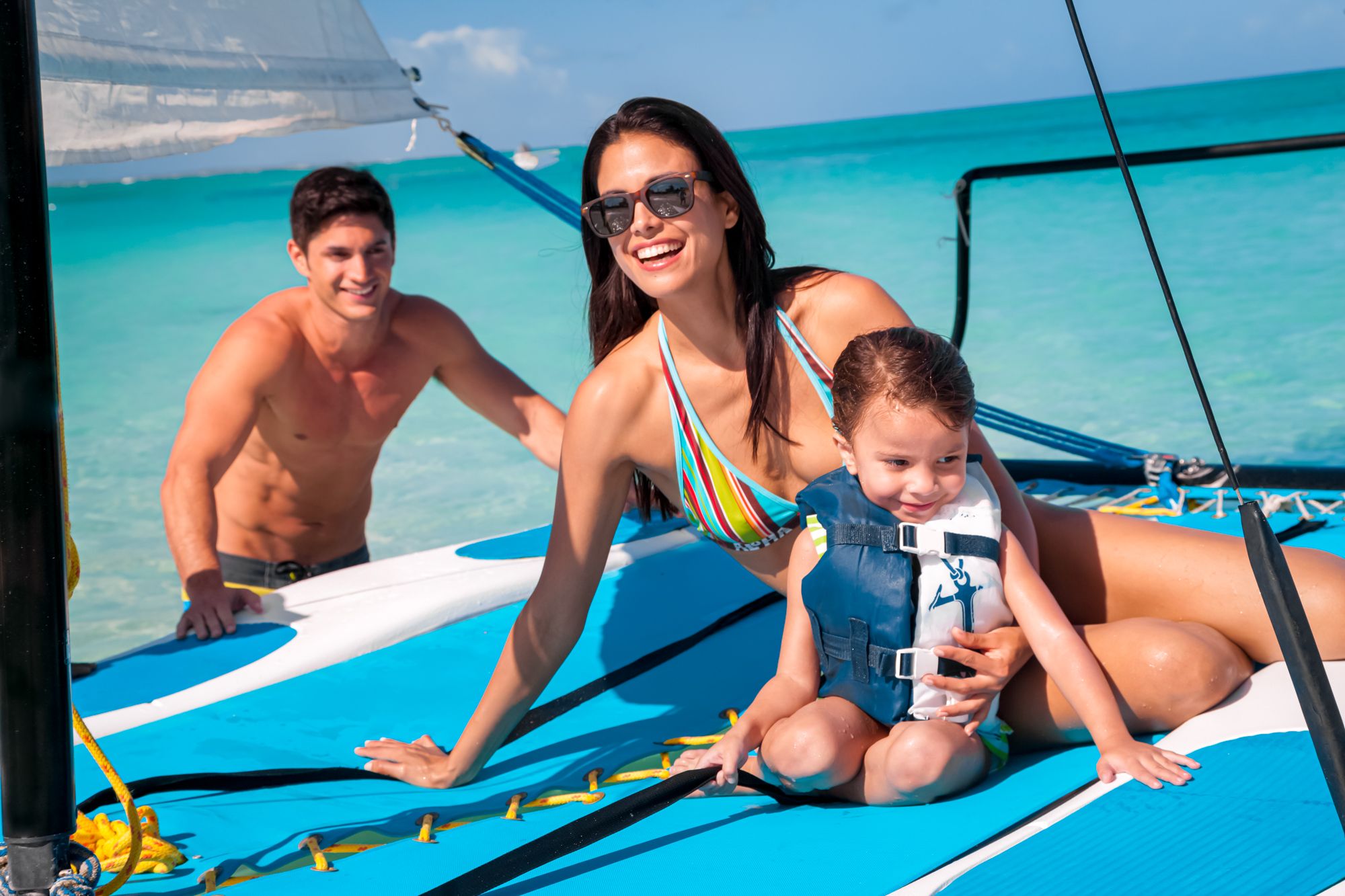
Picture: Beaches is home to some of the calmest, clearest turquoise waters with an incredible variety of all‑inclusive water sports.
While you may be hyper-focused on getting prepared, make sure that your schedule isn’t too rigid. Leave room for the unexpected which can often happen in travel. Be creative in the whole process, and if plans change stay calm, even if your child gets a little flustered. Engage your child in fun, spontaneous games along the way to sway their attention if things are starting to go south. Keep them engaged, as much as possible, and don’t forget to slow down and enjoy the experience.
11. Keep a log of what things worked out and which did not
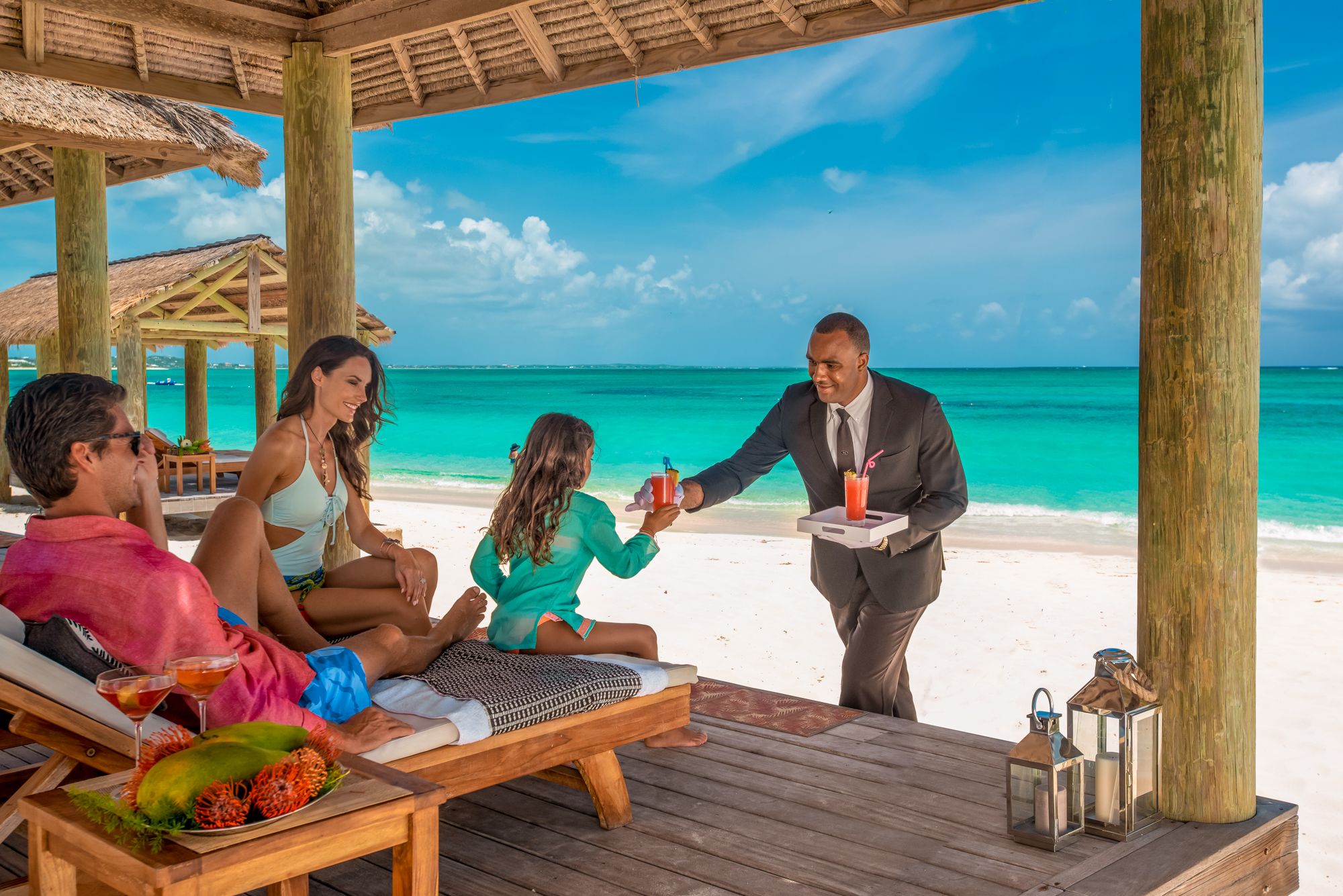
Picture: It's always the perfect time for a family vacation and the butlers at Beaches are experts at anticipating everyone's needs and keeping the kids happy.
The first time will always be the trial run, so don’t have expectations that are too high. Make notes of the things that were successful, and the ones that were not. Gather your thoughts on what might work better next time, because yes, there will be a next time. Take heart and know that next time around, you’ll be able to do an even better job of navigating a family traveling experience with the ones you love most.
12. Go through the photos with your child after your vacation
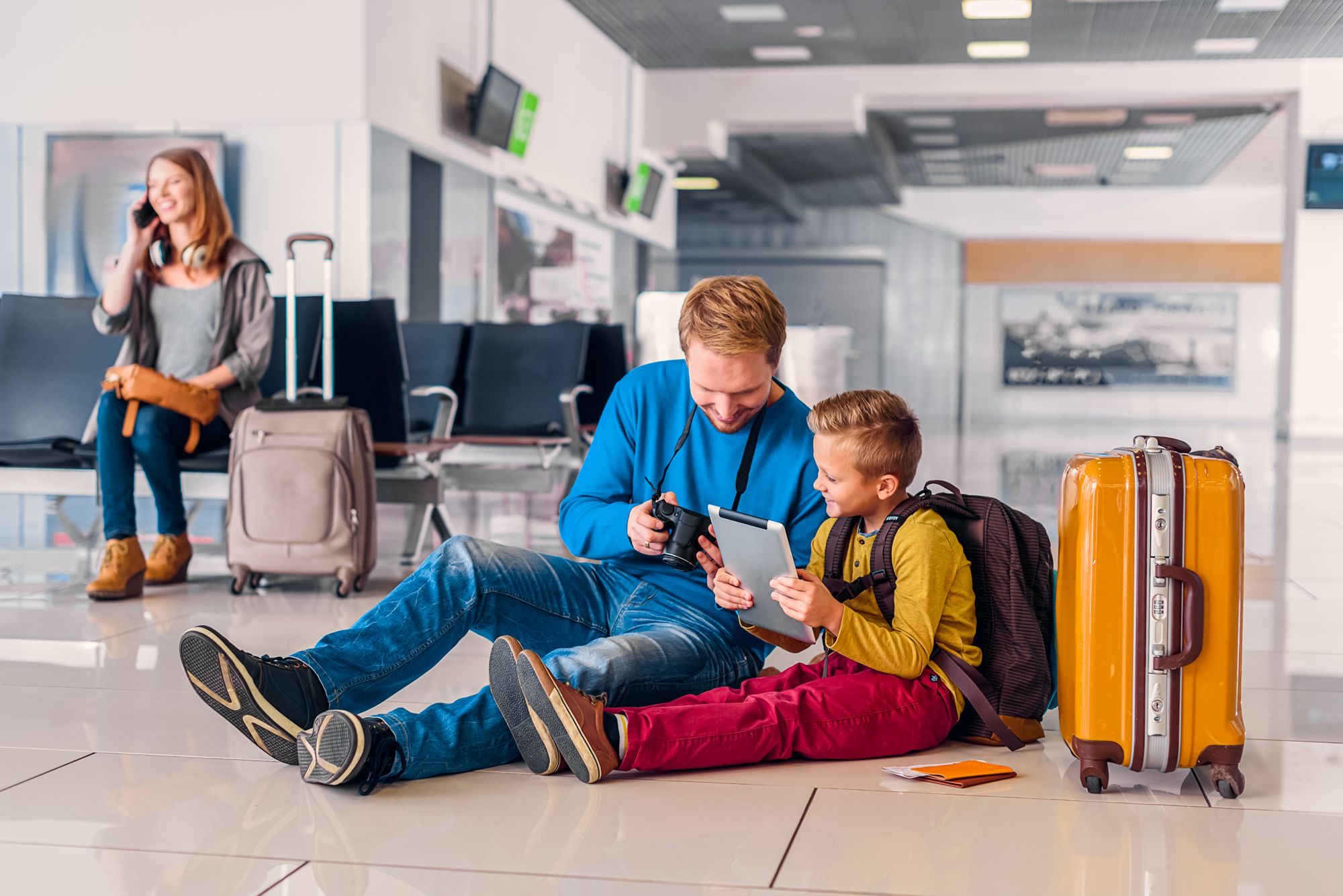
Re-live your vacation experiences with your child once you’re back home by looking through and organizing photos together. This is a great way to help them practice their skills in narration and round up the entire experience in a way they’re sure to appreciate for years to come.
Practice makes perfect!
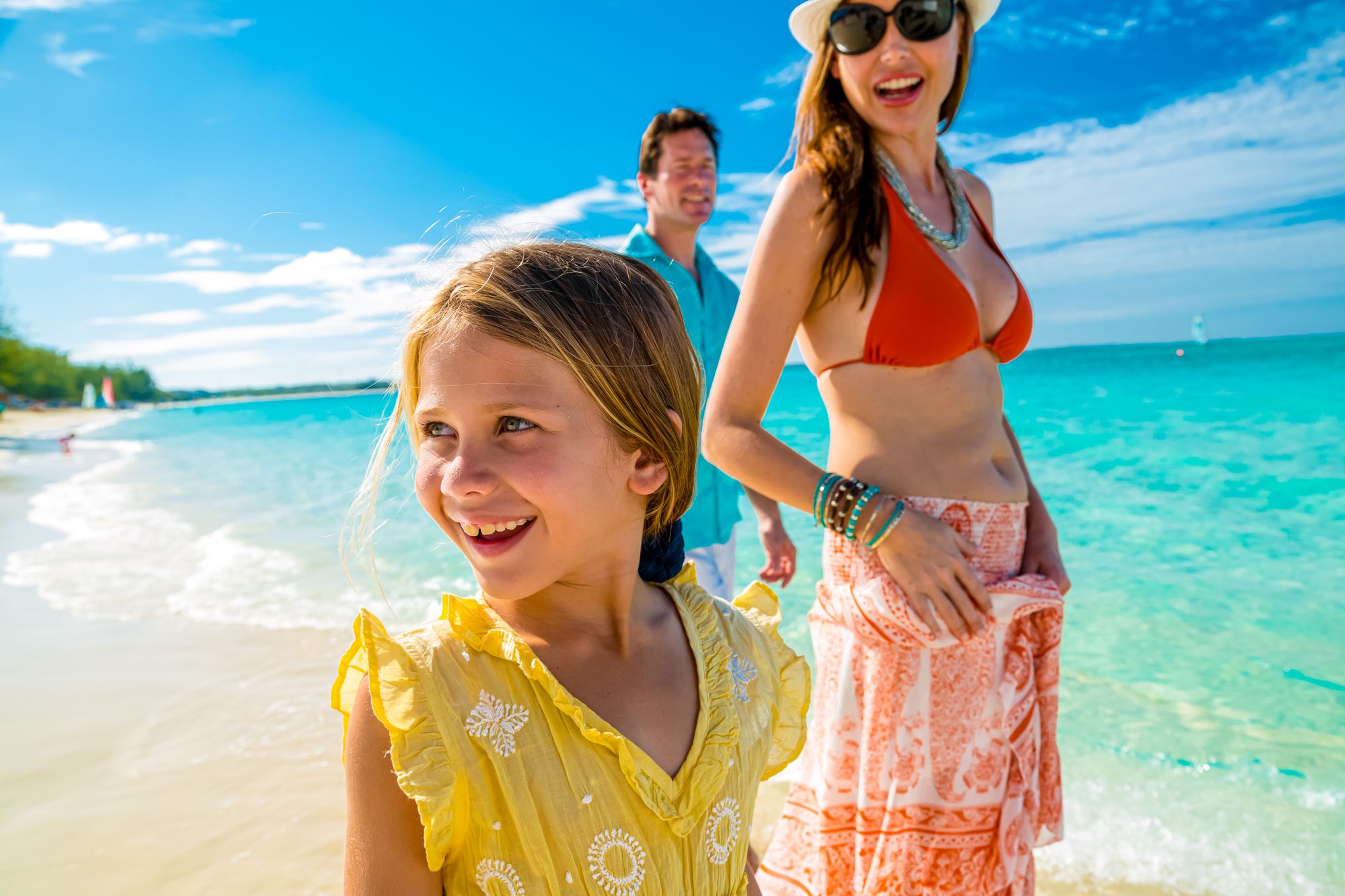
Don’t let fear get in the way of an amazing vacation experience with your child. It is a once-in-a-lifetime opportunity, and with practice, it’ll get easier. If you’re getting set to travel for the first time with your child who is living with autism, or you’re trying it again with more planning in place, remember to take cues from your child. Consider the things they enjoy as you are planning and let that dictate what you do while you’re away.
Let your love for your little one and their love for you guide your way into an amazing experience.

